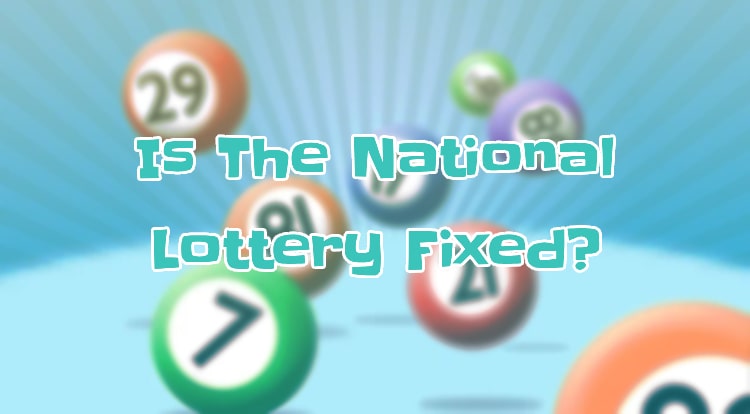
Have you ever wondered if the National Lottery is truly up to chance? Or do whispers of it being 'fixed' hold any truth? In today's post, we're diving deep into this widespread question.
We'll start by exploring how the National Lottery works, shedding light on the drawing process and the odds of winning. This context is vital for understanding the bigger picture. Next, we'll scrutinise the claims that it's fixed. There are plenty of opinions and stories out there, and it's crucial to separate fact from fiction.
And importantly, we'll talk about what to do if you ever feel something isn't quite right. It's a journey for the truth, guided by fairness and transparency.
Is The Lottery Fixed?
The question of whether the National Lottery is fixed is a hot topic. It's essential to approach this with a clear mind and facts.
Firstly, the National Lottery is operated under strict regulations overseen by the UK Gambling Commission (UKGC). This ensures every draw is fair and transparent. Drawings are conducted with rigorous procedures and are frequently audited. These safeguards are in place to protect the integrity of the game and the players.
Rumours of it being fixed usually stem from misunderstandings or frustration from not winning. The reality is that winning the Lottery is extremely unlikely. It's a game of chance, and the odds are not in anyone's favour.
Independent bodies, alongside the UKGC, conduct regular checks to ensure compliance. The Lottery's operations, including the drawing of numbers, are transparent and open to scrutiny.
For those rare instances where something doesn't seem right, there is a robust process in place for investigations. However, no evidence has been found to suggest the National Lottery is anything but a game of chance.
The idea of it being fixed is a myth. With millions playing each week, it's essential to remember the Lottery is about chance, and winning is never guaranteed.
How Do We Know The Lottery Is Not Fixed?
Understanding how the National Lottery maintains its integrity is key to recognising it's not fixed.
At the heart of it all are the rules and regulations set by the UKGC. They ensure that every part of the Lottery's operations is above board and transparent. If the Lottery was found to be fixing the game, they would lose their license to operate in the UK.
Each draw is an intricate procedure that's independently observed. Experts and special equipment are in place to ensure everything runs smoothly and fairly. Essentially, there's a watchdog that makes sure no funny business happens.
Furthermore, the results are random. Sophisticated machines, which are regularly checked and updated, carry out the draw. This technology is designed to prevent any tampering or predictability.
Also, regular audits and checks happen behind the scenes. These examinations are carried out by independent parties, making sure every draw stands up to the strict standards required.
The transparency doesn't stop there. You can find information about winners, prizes, and the odds openly. This openness is another pillar that supports the fairness of the Lottery.
Finally, there's no need for the Lottery to fix the draws. The chances of winning are incredibly slim, and there are so many participants paying to play every week that they are a profitable business. Fixing the draws puts their license to operate at risk, and since they are making money anyway, it's an unnecessary one.
To sum up, it's the combination of strict regulation, independent oversight, and cutting-edge technology that ensures the National Lottery isn't fixed. These measures are not just for show; they're the foundation of a game that's fair and fun.
How Random Is The Lottery?
When we talk about the National Lottery, the word 'random' is key. But what exactly does that mean?
The National Lottery employs a system that's designed to be completely random. This means every number has an equal chance of being picked in any draw.
To ensure this randomness, they use specially designed machines and sets of balls. These machines are tested and checked regularly. Essentially, they are large drums filled with lightweight numbered balls. Air is then blown into the drum, so the balls are constantly moving. Then, one ball is picked at a time. There is no way to predict the movements of the balls, so the results are random.
This randomness is overseen by independent observers. Their job is to make sure everything is on the up and up, from the way the machines work to how the draws are conducted.
But let's not forget the maths. The odds of winning are clearly stated, and they don't change, regardless of which numbers you pick or how many people are playing. This is a key element of the Lottery's randomness and fairness.
In sum, the National Lottery's foundation is built on randomness. With rigorous checks, independent oversight, and transparent odds, it's a system designed to give everyone an equal shot.
